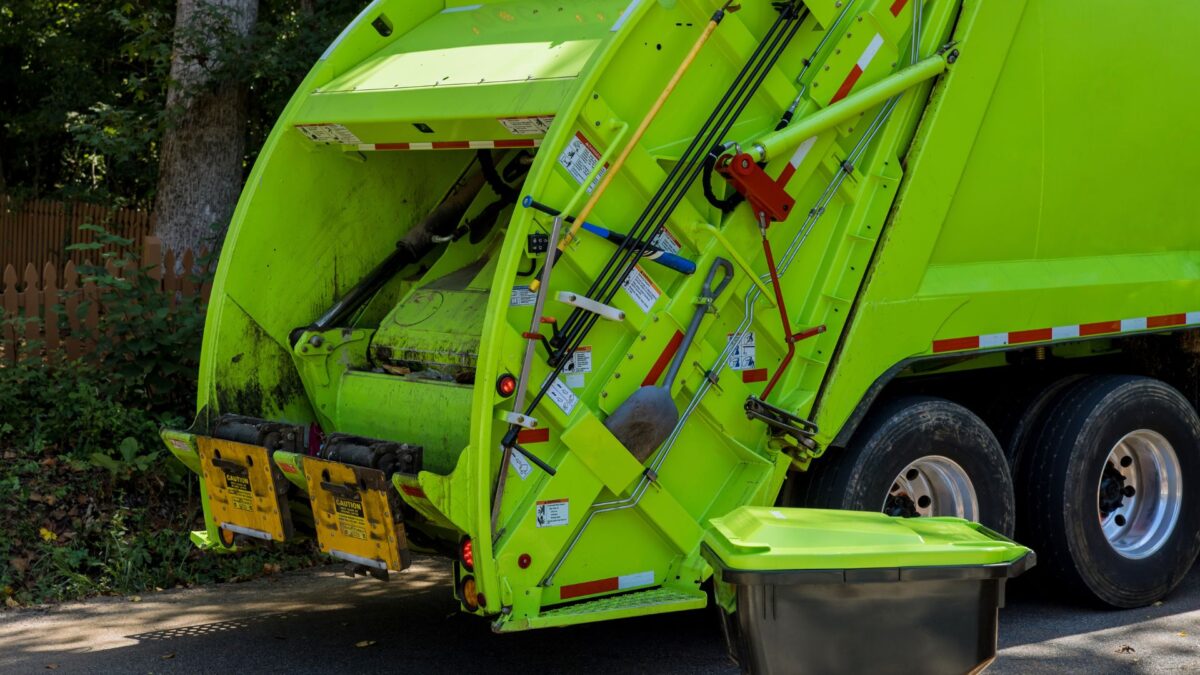
How to Use Junk Removal Services for Efficient Recycling
September 18, 2025
The Advantages of Using an Eco-Friendly Junk Removal Service
September 18, 2025Top Benefits of E-Waste Disposal for a Cleaner Environment
The rapid pace of technology has brought endless conveniences, yet it has also created an invisible challenge—electronic waste. Old phones, outdated computers, broken televisions, and countless gadgets often sit forgotten in closets or end up in landfills, releasing harmful toxins into the environment. Proper e-waste disposal offers a way to counter this growing problem by turning clutter into opportunity. Instead of letting electronics pile up, communities are finding value in responsible recycling practices. By choosing eco-conscious solutions, individuals not only protect the planet but also shape a healthier, more sustainable future for generations to come.
Reducing harmful toxins in the environment
Electronic waste contains substances that, when improperly disposed of, can leach into soil and water. Lead, mercury, and cadmium are just a few examples of the dangerous chemicals locked inside everyday devices. If electronics are tossed into regular trash, these toxins gradually seep out, contaminating ecosystems and posing risks to human health. Proper e-waste disposal prevents this chain reaction by ensuring hazardous materials are carefully separated and treated.
Communities benefit when harmful pollutants are kept out of natural systems. Clean soil, safer drinking water, and healthier wildlife all stem from responsible recycling practices. Beyond the immediate safety benefits, preventing toxic contamination safeguards long-term environmental stability. Choosing e-waste disposal is more than a matter of convenience; it is an act of protection. Each device recycled responsibly becomes one less threat to the environment, showing how small, individual actions contribute to a cleaner and safer world for all.

Conserving valuable natural resources
Electronics are packed with materials that require enormous energy and effort to extract from the earth. Copper, gold, silver, and rare earth metals are all hidden within discarded devices. Through proper e-waste disposal, these materials are recovered and reused, reducing the demand for new mining. By recycling components, communities conserve natural resources while lowering the environmental impact of raw material extraction.
The preservation of resources also contributes to global sustainability goals. Every device recycled helps slow the depletion of nonrenewable materials and reduces strain on fragile ecosystems. When individuals and businesses commit to e-waste recycling, they extend the lifecycle of precious resources and decrease reliance on destructive mining operations. This cycle creates a balance between technological progress and environmental responsibility. Conserving resources through e-waste disposal is not only smart for the planet but also essential for sustaining innovation in the years ahead.
Preventing overflowing landfills in local areas
Landfills across the world are already under immense strain, and the addition of electronic waste only worsens the problem. Bulky monitors, outdated televisions, and discarded printers take up significant space while contributing little to the cycle of reuse. By choosing responsible e-waste disposal, communities can reduce the volume of waste sent to landfills, freeing up capacity for items that cannot be recycled. This proactive step helps ease the burden on local waste management systems.
Reducing landfill use has broader benefits beyond space conservation. Electronics that break down in landfills often release toxic substances that compromise soil and groundwater. Preventing this scenario through recycling not only protects the environment but also safeguards community health. When e-waste is properly diverted, landfills become less hazardous, and the surrounding ecosystem remains cleaner. Choosing recycling over dumping transforms waste management into an opportunity for sustainability rather than a looming environmental threat.
Boosting local economies through recycling industries
E-waste disposal does more than protect the environment—it also supports local economies. Recycling facilities and repair centers provide jobs for skilled workers who dismantle, sort, and process discarded electronics. These industries create stable employment opportunities while strengthening regional economies with sustainable practices. The demand for workers in recycling operations continues to grow as more communities adopt eco-friendly waste management solutions.
In addition, the resale of reclaimed materials fuels new economic cycles. Recovered metals, plastics, and components can be reintegrated into manufacturing, reducing production costs for companies and supporting green business models. Local communities benefit from this circular economy, where waste is not an endpoint but a valuable resource. Supporting e-waste recycling means strengthening both environmental resilience and financial stability. This dual benefit proves that sustainability and economic growth are not opposing forces but rather interconnected goals that thrive together.
Encouraging responsible consumer behavior
When people witness the tangible benefits of e-waste disposal, it inspires more thoughtful consumption habits. Seeing electronics recycled instead of wasted reminds individuals that every product has a lifecycle and should be treated with care from purchase to disposal. This awareness encourages consumers to buy durable goods, avoid unnecessary upgrades, and consider repair before replacement. Over time, these small behavioral changes add up to significant environmental impact.
Responsible disposal also sets an example for younger generations, teaching the importance of sustainability through action. Children growing up in households or communities that recycle electronics are more likely to adopt eco-conscious habits themselves. The ripple effect creates a culture of accountability and mindfulness that extends beyond electronics to other aspects of daily life. Proper e-waste disposal therefore becomes more than a service—it becomes a teaching tool that fosters long-term environmental responsibility within communities.
Safeguarding human health and well being
Improper disposal of electronics has direct consequences for human health. Devices contain hazardous materials that can contaminate air, water, and food supplies when not handled correctly. Lead exposure, for example, can impair neurological development, while mercury contamination poses risks to both humans and wildlife. Responsible e-waste disposal eliminates these dangers by ensuring toxins are managed safely. This proactive approach protects communities from long-term exposure to harmful substances.
The health benefits extend beyond environmental safety. Recycling facilities are designed with proper handling measures, reducing risks to workers and residents alike. Cleaner air, safer soil, and uncontaminated water are the tangible results of safe e-waste disposal practices. By prioritizing health alongside sustainability, communities create a stronger foundation for future growth. Every recycled device represents a choice for well-being, showing that environmental responsibility and human health are inseparable goals.
Supporting technological innovation and growth
Recycling e-waste helps fuel future technological advancements by recovering valuable materials that are essential for manufacturing. Rare earth elements, for example, are crucial for producing smartphones, renewable energy technologies, and advanced medical equipment. By ensuring these resources are reclaimed from discarded electronics, societies create a steady supply chain for innovation. Recycling prevents shortages that could otherwise hinder technological progress.
Innovation thrives when resources are available and responsibly managed. Communities that commit to e-waste disposal position themselves at the forefront of sustainable development, enabling businesses to invest in cleaner technologies with confidence. By recycling electronics, residents contribute indirectly to industries that shape the future, from renewable energy to advanced communications. Proper e-waste management ensures that technological growth does not come at the expense of environmental destruction. Instead, it creates a balanced pathway where progress and sustainability advance hand in hand.
Strengthening community responsibility
E-waste disposal strengthens the fabric of communities by encouraging shared responsibility. When neighbors and local organizations work together to manage electronic waste, they create a sense of unity around a common goal. This collective effort fosters pride and accountability, demonstrating that everyone has a role to play in protecting the environment.
Community-based recycling programs often become catalysts for broader initiatives. Local clean-up events, sustainability fairs, and educational workshops grow out of the shared commitment to responsible waste management. As people participate in these programs, they build stronger social ties while contributing to meaningful environmental change. E-waste disposal therefore serves as more than a method of managing clutter—it becomes a tool for building resilient, connected communities that prioritize the well-being of both people and the planet.
Reducing greenhouse gas emissions
Manufacturing new electronics from raw materials consumes significant energy, leading to high levels of greenhouse gas emissions. Recycling e-waste mitigates this impact by conserving energy and reducing the demand for new extraction and processing. For example, recycling aluminum from old devices saves up to 95 percent of the energy required to produce it from ore. This energy savings translates directly into fewer emissions and a smaller carbon footprint.
Communities that prioritize e-waste recycling contribute to global efforts against climate change. Each recycled device represents avoided emissions, proving that local actions create global benefits. By reducing the need for intensive mining and manufacturing, responsible disposal minimizes environmental damage while supporting climate goals.
Building a sustainable future for generations
Perhaps the most profound benefit of e-waste disposal is its contribution to building a sustainable future. Every action taken today shapes the environment future generations will inherit. Recycling electronics preserves resources, reduces pollution, and ensures cleaner ecosystems for decades to come. This forward-thinking approach acknowledges that short-term convenience cannot outweigh long-term responsibility.
Children growing up in communities committed to e-waste disposal will enjoy healthier environments and greater access to resources. They will see firsthand the results of sustainability in action, which may inspire them to continue these efforts. By embedding environmental responsibility into everyday practices, societies create a legacy of stewardship and resilience.
Conclusion
The benefits of e-waste disposal extend far beyond clearing out old gadgets; they represent a powerful commitment to environmental responsibility and community well-being. From conserving valuable resources and reducing landfill waste to safeguarding public health and lowering greenhouse gas emissions, proper electronic recycling delivers long-lasting impact. It strengthens economies, fuels technological growth, and fosters collective responsibility among residents. For those seeking effective solutions in Santa Rosa, CA, North Bay Junk Removal provides professional junk removal services designed to handle electronics responsibly. Their eco-friendly approach ensures that discarded devices are recycled, repurposed, or safely disposed of, creating cleaner spaces and healthier communities. To schedule a sustainable junk removal service that aligns with environmental goals, contact North Bay Junk Removal at 707-478-6817. Choosing responsible e-waste disposal today is not just about getting rid of clutter—it is about contributing to a cleaner environment and building a brighter future for generations ahead.




